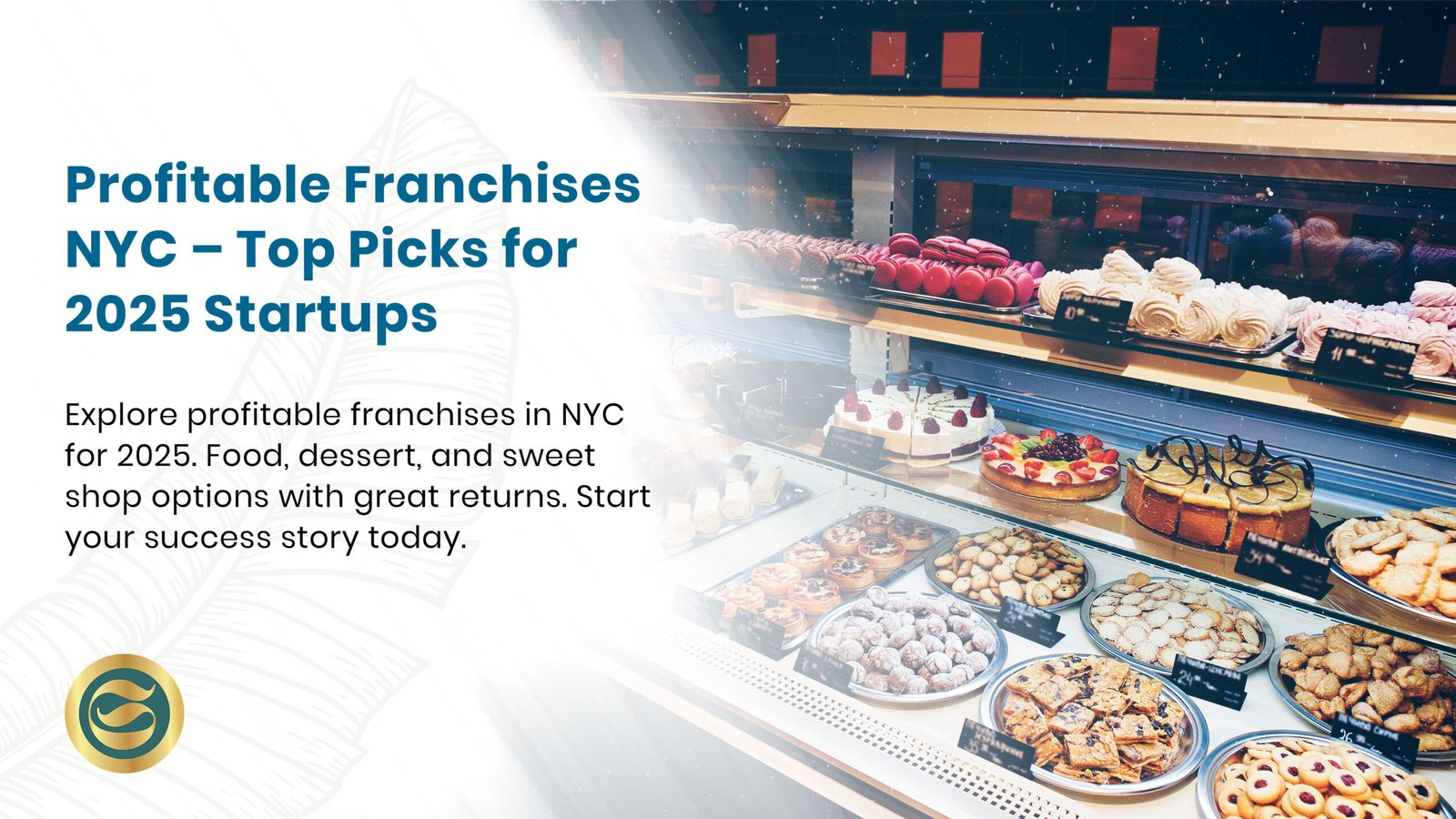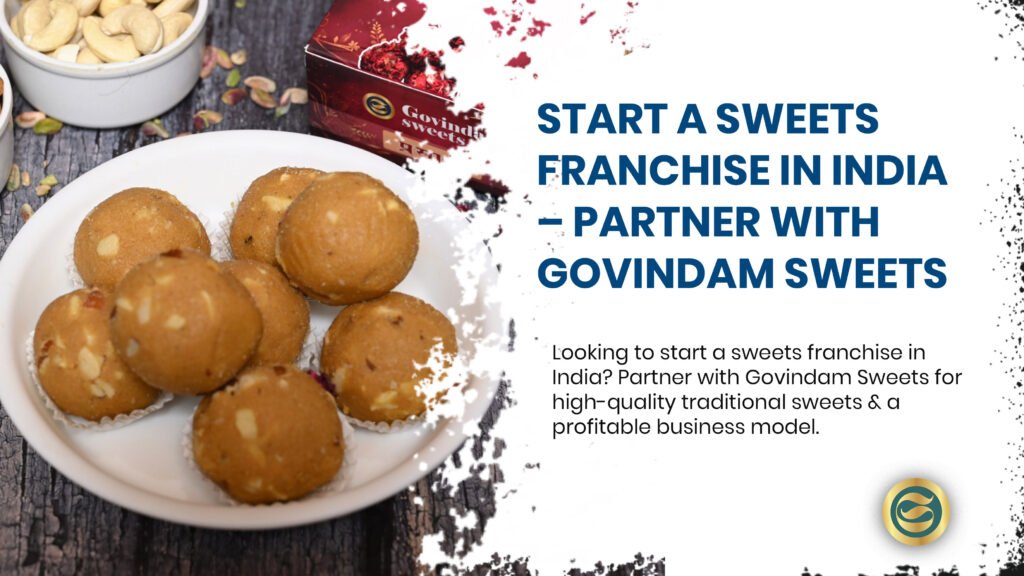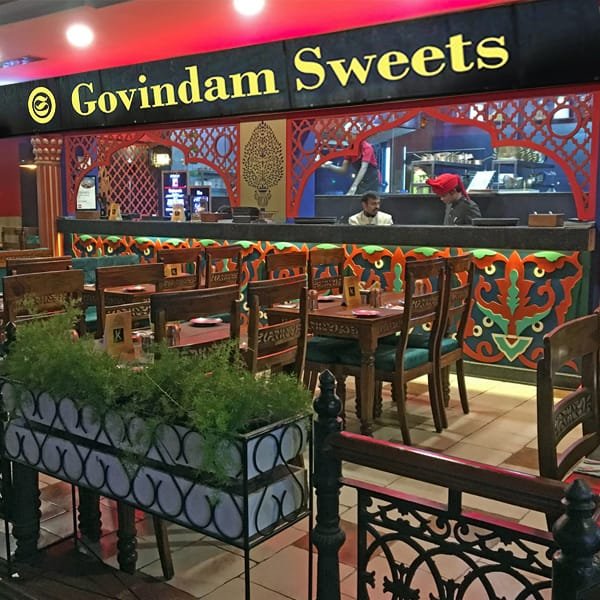Profitable Franchises NYC – Top Picks for 2025 Startups

Discover the most lucrative franchise opportunities in New York City for 2025. Our comprehensive guide analyzes investment requirements, ROI potential, and market viability across food, retail, and service sectors, helping aspiring entrepreneurs identify the perfect franchise match for their budget and business goals.
Profitable Franchises NYC: Market Overview for 2025
Profitable Franchises NYC offers entrepreneurs a compelling pathway to business ownership in America’s most dynamic market. As New York City continues its post-pandemic economic revival, the franchise sector demonstrates remarkable resilience and growth potential heading into 2025. The unique business landscape of NYC creates distinctive advantages for franchise operations, combining dense population, high disposable income, and unmatched foot traffic with the security of proven business models.
Recent economic data illustrates why franchise opportunities NY remain attractive despite the city’s well-known challenges. According to the New York City Economic Development Corporation, consumer spending has rebounded to 112% of pre-pandemic levels, with particularly strong growth in food service, personal care, and specialized retail – all sectors where franchises traditionally excel. Meanwhile, commercial real estate adjustments have created location opportunities at more favorable terms than were available in previous years.
“The franchise model offers particular advantages in the New York market,” explains Jennifer Torres, franchise development consultant at The Franchise Advisory Group. “The combination of established systems and brand recognition helps new businesses overcome the city’s notoriously high failure rate for independent startups. When you pair that systematic approach with NYC’s exceptional customer density, you create potential for returns that significantly outpace national averages for the same concepts.”
This comprehensive guide examines the most profitable franchises NYC across multiple sectors, investment levels, and business models. Whether you’re a first-time entrepreneur or a seasoned business owner looking to diversify, this analysis will help identify franchise opportunities best positioned for success in New York’s unique business environment during 2025 and beyond.
Top Franchises Under $50k NYC: Low Investment, High Potential
The appeal of low-investment franchise opportunities NY is obvious, but finding truly viable options under $50,000 in New York City requires careful research. These concepts offer genuine paths to business ownership with minimal initial capital.
Service-Based Franchises Under $50k
Service franchises typically offer the lowest entry points while avoiding the high real estate costs associated with retail locations.
Cleaning & Maintenance Franchises
- Stratus Building Solutions: Commercial cleaning franchise
- Investment range: $4,450 – $72,750 (depending on package)
- Franchise fee: $2,700 – $39,000
- NYC advantage: High concentration of commercial buildings requiring services
- Profitability factors: Recurring revenue, scalable business model, lower labor competition than in other markets
Home Services Franchises
- Screenmobile: Mobile window screen repair and replacement
- Investment range: $44,550 – $118,000
- Franchise fee: $39,500
- NYC advantage: Aging housing stock with ongoing maintenance needs
- Profitability factors: Mobility eliminates retail costs, high margin on services, minimal competition
Business Services Franchises
- Digital Marketing Concepts: Digital services for local businesses
- Investment range: $9,750 – $31,000
- Franchise fee: $7,500
- NYC advantage: Dense concentration of businesses needing digital presence
- Profitability factors: Home-based operation, recurring revenue model, high-margin services
Mobile Food Concepts Under $50k
While full restaurant franchises exceed this price range, several mobile food concepts offer entry points under $50,000.
Shaved Ice & Dessert Carts
- Kona Ice: Mobile shaved ice franchise
- Investment range: $40,200 – $124,250 (mini-cart options under $50k)
- Franchise fee: $15,000
- NYC advantage: Park access, event opportunities, tourist concentrations
- Profitability factors: Low food cost, high margin, strong seasonal revenue
Mobile Coffee Services
- Xpresso Delight: Office coffee service franchise
- Investment range: $25,900 – $69,900
- Franchise fee: $19,500
- NYC advantage: High concentration of offices and commercial clients
- Profitability factors: Recurring revenue, limited working hours, low overhead
Retail Franchises Under $50k
While retail typically requires significant investment, several concepts offer lower-cost entry points.
Kiosk & Mall-Based Retail
- Gamer’s Vault: Video game buy/sell/trade kiosks
- Investment range: $34,700 – $133,200 (kiosk format at lower end)
- Franchise fee: $20,000
- NYC advantage: High foot traffic in mall locations, dense gaming population
- Profitability factors: High margin on used product, multiple revenue streams
Profitable Food Franchises NYC: Culinary Concepts With Strong Returns
The food franchise NYC category remains among the most sought-after despite higher investment requirements, thanks to proven demand and strong unit economics when properly executed.
Quick-Service Restaurant Franchises
Quick-service remains the most accessible entry point for food franchise entrepreneurs.
Burger & Sandwich Concepts
- The Habit Burger Grill: Premium fast-casual burger franchise
- Investment range: $1.2M – $1.7M
- Average unit volume: $1.9M
- Typical profit margin: 15-20%
- NYC advantage: Strong lunch business in commercial areas, delivery demand in residential zones
- Success factors: Streamlined menu, strong digital ordering platform, smaller footprint options
Chicken Concepts
- Dave’s Hot Chicken: Nashville-style hot chicken concept
- Investment range: $651,500 – $1.2M
- Average unit volume: $3.2M+
- Typical profit margin: 18-25%
- NYC advantage: Strong evening and late-night business, social media appeal
- Success factors: Limited menu, efficient kitchen design, strong delivery business
Ethnic Food Concepts
- The Halal Guys: Middle Eastern quick-service concept
- Investment range: $400,000 – $900,000
- Average unit volume: $1.2M
- Typical profit margin: 15-22%
- NYC advantage: Brand originated in NYC with strong recognition, diverse customer base
- Success factors: Simple menu, efficient operations, strong lunch business
Dessert & Snack Franchises
The dessert business opportunities NY category offers lower investment requirements than full-service restaurants while maintaining strong margins.
Ice Cream & Frozen Desserts
- Van Leeuwen Ice Cream: Premium ice cream shop
- Investment range: $380,000 – $575,000
- Average unit volume: $800,000 – $1.2M
- Typical profit margin: 15-20%
- NYC advantage: NYC-born brand with strong local following, year-round business unlike seasonal markets
- Success factors: Premium positioning, Instagram appeal, efficient production
Bakery & Pastry Concepts
- Cinnabon: Cinnamon roll and baked goods franchise
- Investment range: $180,000 – $400,000
- Average unit volume: $650,000 – $900,000
- Typical profit margin: 15-18%
- NYC advantage: High foot traffic locations, strong brand recognition
- Success factors: Small footprint options, strong aroma marketing, efficient production
Specialty Coffee & Treats
- PJ’s Coffee: New Orleans-style coffee shop franchise
- Investment range: $350,000 – $575,000
- Average unit volume: $750,000 – $1M
- Typical profit margin: 16-20%
- NYC advantage: Multiple dayparts, workspace appeal, residential neighborhood potential
- Success factors: Multiple revenue streams, efficient staffing model, quality differentiation
CategoryFranchiseInvestment RangeAvg. Unit VolumeTypical Profit MarginReal Estate RequirementQSRThe Habit Burger$1.2M-$1.7M$1.9M15-20%2,000-3,000 sq ftQSRDave's Hot Chicken$651K-$1.2M$3.2M+18-25%1,800-2,500 sq ftDessertVan Leeuwen$380K-$575K$800K-$1.2M15-20%800-1,500 sq ftDessertCinnabon$180K-$400K$650K-$900K15-18%400-1,000 sq ftServiceStratus Building$4.5K-$72KVaries25-35%Home-basedServiceScreenmobile$44K-$118K$400K-$600K20-30%Mobile operation
Dessert Business Opportunities NY: Sweet Success in the Big Apple
The dessert business opportunities NY segment offers compelling advantages for franchise investors seeking the optimal balance between investment requirements, operational complexity, and profit potential.
Why Dessert Franchises Outperform in NYC
Several factors make dessert concepts particularly viable in New York:
- Smaller footprint requirements: Dessert-focused businesses typically require 800-1,500 square feet versus 2,000-3,500 for full restaurants
- Lower staff requirements: Simplified operations often require 50-60% fewer employees than full-service restaurants
- Multiple revenue streams: Successful concepts capture retail, catering, wholesale, and ecommerce channels
- Social media advantage: Visually appealing products drive organic marketing in NYC’s influencer-rich environment
- Year-round appeal: Unlike seasonal markets, NYC supports consistent dessert sales across all seasons
Top-Performing Dessert Franchise Categories
Customizable Concepts
Franchises offering personalized products show strong performance:
- Crumbl Cookies: Rotating menu of specialty cookies
- Investment range: $227,000 – $567,000
- Average unit volume: $1.5M+
- NYC advantage: Strong delivery business, social media virality
- Success factors: Limited weekly menu, strong online ordering, gift-giving appeal
Experiential Dessert Franchises
Concepts offering experiences beyond just products:
- The Dough Bar: Create-your-own donut concept
- Investment range: $292,850 – $527,500
- Average unit volume: $800,000 – $1.2M
- NYC advantage: Experiential appeal, Instagram-worthy presentations
- Success factors: Interactive elements, customization options, visual appeal
Healthier Option Concepts
Health-conscious dessert franchises meeting modern preferences:
- Rush Bowls: Fruit bowls and smoothies
- Investment range: $239,000 – $568,000
- Average unit volume: $650,000 – $900,000
- NYC advantage: Health-conscious demographic, breakfast/lunch appeal
- Success factors: Smaller footprint, simple operations, multiple dayparts
Small Business Franchise: Location Strategies for NYC Success
Strategic location selection significantly impacts the performance of small business franchise operations in New York’s diverse marketplace.
Borough-Specific Opportunities
Each NYC borough presents distinct advantages for different franchise concepts:
Manhattan
- Midtown/Financial District: Ideal for concepts capturing office worker traffic
- Best fit: Grab-and-go food concepts, coffee franchises, business services
- Key metrics: Weekday foot traffic, office population density, transit proximity
- Typical challenges: High rent, weekend lulls, evening slowdowns
- Residential Neighborhoods (UES, UWS, Village areas): Strong for community-focused concepts
- Best fit: Dessert shops, fitness franchises, personal services
- Key metrics: Residential density, average household income, competitor saturation
- Typical challenges: Space constraints, delivery logistics, permitting complexity
Brooklyn
- Downtown/North Brooklyn: Strong for trendsetting concepts
- Best fit: Innovative food concepts, fitness franchises, specialty retail
- Key metrics: Millennial/Gen Z concentration, social media engagement potential, tourism factors
- Typical challenges: Rapidly changing demographics, high expectations, trend sensitivity
- South/Central Brooklyn: Ideal for family-oriented concepts
- Best fit: Education franchises, service providers, value-positioned food
- Key metrics: Family household percentage, homeownership rates, vehicle access
- Typical challenges: Price sensitivity, parking requirements, different borough regulations
Queens
- Long Island City/Astoria: Strong for hybrid concepts serving both residents and Manhattan commuters
- Best fit: Coffee shops, fast-casual food, convenience-oriented services
- Key metrics: Transit usage, residential growth rates, weekday vs. weekend patterns
- Typical challenges: Evolving neighborhoods, construction impacts, visibility issues
Real Estate Considerations for NYC Franchises
Navigating NYC’s complex real estate landscape requires specialized strategies:
- Conversion opportunities: Targeting second-generation restaurant/retail spaces to reduce buildout costs
- Non-traditional locations: Considering transit centers, office lobbies, educational institutions
- Timing advantages: Negotiating during slower real estate cycles for better terms
- Co-retailing arrangements: Sharing spaces with complementary businesses to reduce overhead
- Lease structure optimization: Focusing on percentage rent clauses, tenant improvement allowances, and escalation caps
Site Selection Best Practices
Key factors in evaluating potential locations for franchise opportunities NY:
- Visibility factors: Street frontage, signage opportunities, architectural barriers
- Access considerations: Public transportation proximity, delivery vehicle accommodation, ADA compliance
- Co-tenancy evaluation: Complementary businesses driving compatible traffic
- Future development assessment: Upcoming projects affecting traffic patterns or demographics
- Regulatory review: Zoning, permitting, landmark restrictions, community board dynamics
Investment Business NY: Financial Considerations for Franchise Success
Understanding the financial dimensions of profitable franchises NYC requires examining several key factors beyond initial investment requirements.
Key Financial Metrics to Evaluate
When assessing franchise opportunities, consider these critical performance indicators:
Unit Economics Analysis
- Average unit volume (AUV): Typical annual revenue per location
- Typical EBITDA range: Earnings before interest, taxes, depreciation, and amortization
- Labor cost percentage: Labor expenses as percentage of revenue (critical in NYC’s high-wage environment)
- Occupancy cost threshold: Maximum sustainable rent as percentage of revenue (typically 8-12%)
- Break-even timeline: Average months to operational break-even
NYC-Specific Financial Factors
- Borough variability: Revenue and cost differences across NYC neighborhoods
- Seasonality patterns: Tourism impacts, weather sensitivity, neighborhood-specific cycles
- Multiple revenue streams: Catering, delivery, retail product potential
- Operating hour optimization: Performance analysis across different dayparts
- Local vendor relationships: Supply chain economics specific to NYC
Financing Options for NYC Franchise Investments
Several pathways exist to fund business ideas NYC in the franchise sector:
Traditional Financing Methods
- SBA loans: 7(a) and 504 programs offer favorable terms for qualifying franchises
- Advantages: Lower down payments (typically 10-15%), longer terms (up to 25 years)
- Requirements: Good credit (typically 680+), industry experience, 10%+ cash injection
- NYC considerations: Higher loan amounts available for NYC’s higher-cost market
- Conventional bank loans: Traditional business financing
- Advantages: Potentially faster processing, fewer restrictions
- Requirements: Stronger credit, larger down payment (typically 20-30%), collateral
- NYC considerations: Relationships with banks familiar with NYC business environment
Alternative Financing Strategies
- Franchisor financing: Direct lending or assistance from franchise companies
- Advantages: Simplified process, potentially better terms
- Availability: Varies significantly by franchise system
- 401(k)/IRA rollover funding: Using retirement funds without early withdrawal penalties
- Advantages: No debt, no credit requirements, tax advantages
- Requirements: Sufficient retirement savings, proper legal structure
- Caution areas: Compliance requirements, risk considerations
- Private investors/partnerships: Equity sharing arrangements
- Advantages: Reduced personal capital requirements, shared risk
- Considerations: Clear operating agreements, defined roles and expectations
- NYC advantage: Access to larger investor pool than most markets
Business Ideas NYC: Emerging Franchise Categories for 2025
Forward-looking entrepreneurs should consider these emerging franchise categories showing strong potential in the NYC market for 2025.
Technology-Enabled Service Franchises
Concepts leveraging technology to deliver enhanced services:
- Drones & Robotics: Franchise concepts utilizing automation for delivery and service
- Investment range: $65,000 – $130,000
- Advantage: Reduced labor costs, differentiated offering
- NYC application: Last-mile delivery challenges, service access in congested areas
- Virtual Reality Experiences: Entertainment concepts built around VR technology
- Investment range: $190,000 – $500,000
- Advantage: Premium pricing, unique experience
- NYC application: Limited entertainment square footage, tourism appeal
Health & Wellness Evolution
Franchise concepts addressing evolving health priorities:
- Recovery-Focused Fitness: Specialized recovery and wellness studios
- Investment range: $150,000 – $350,000
- Advantage: Membership-based recurring revenue
- NYC application: Stress management needs, sports recovery, limited home space
- Mental Wellness Franchises: Concepts focusing on mental health services
- Investment range: $120,000 – $270,000
- Advantage: Growing acceptance, insurance integration
- NYC application: High-stress environment, therapy normalization
Sustainability-Focused Concepts
Franchises built around environmental responsibility:
- Refill & Reuse Retail: Package-free shopping concepts
- Investment range: $150,000 – $300,000
- Advantage: Reduced product costs, community loyalty
- NYC application: Environmental consciousness, smaller living spaces
- Upcycled Product Retailers: Retail concepts featuring reclaimed materials
- Investment range: $80,000 – $200,000
- Advantage: Unique products, flexible inventory
- NYC application: Design-conscious market, sustainability focus
Franchise Success Stories: NYC Operator Perspectives
Learning from successful profitable franchises NYC operators provides valuable insight for prospective investors.
Quick-Service Restaurant Success: The Halal Guys
Mohamed Abouelenein began as a NYC food cart operator before developing a franchise system now operating in multiple NYC locations and worldwide.
Key success factors:
- Menu consistency: Limited, focused offerings maintaining quality at scale
- Location strategy: High-traffic areas with strong lunchtime populations
- Brand authenticity: Maintaining connection to NYC street food roots
- Multiple revenue streams: Dine-in, takeout, delivery, and retail products
Operator insight: “Understanding the unique rhythm of each New York neighborhood is essential. Our Midtown locations have completely different peak hours and ordering patterns than our downtown or outer borough locations. We adjust staffing, preparation, and marketing accordingly.” – Current NYC multi-unit franchisee
Service Franchise Excellence: Screenmobile
Michael Richmond operates multiple Screenmobile territories across NYC boroughs, demonstrating how service franchises can thrive in urban environments.
Key success factors:
- Specialized service: Filling a niche with limited competition
- Mobile advantage: Avoiding retail overhead costs
- Borough-specific marketing: Tailored approaches for different areas
- Weather adaptation: Developing complementary services for seasonal balance
Operator insight: “The key to service franchise success in New York is logistical efficiency. We map our service calls to minimize travel time between appointments, which is critical in NYC traffic. We also invested in a sophisticated scheduling system that allows us to group appointments by neighborhood, which has dramatically improved our productivity.” – Current NYC franchise operator
Dessert Concept Growth: Magnolia Bakery
Though it began as an independent bakery, Magnolia’s successful franchise expansion demonstrates the potential in the dessert business opportunities NY category.
Key success factors:
- Brand recognition: Leveraging cultural references and tourism appeal
- Product specialization: Famous for specific signature items
- Multiple channels: Retail, e-commerce, wholesale, and corporate gifting
- Experience focus: Creating destination appeal beyond just products
Operator insight: “Success in New York’s dessert space requires creating something Instagram-worthy. We see customers making decisions based on what will look good on their social media almost daily. We’ve designed our display cases and packaging specifically to be photogenic, which drives substantial word-of-mouth marketing.” – NYC bakery franchise operator
Frequently Asked Questions About Profitable Franchises NYC
What are the most profitable types of franchises in NYC currently?
Based on current market data, the most profitable franchise categories in NYC include quick-service restaurants (particularly those with strong delivery models), specialized fitness concepts, dessert and snack-focused food businesses, and service franchises with recurring revenue models. Specific concepts showing above-average returns include The Halal Guys, Dave’s Hot Chicken, Crumbl Cookies, and Stretch Lab, all reporting average unit volumes significantly above national averages in their NYC locations. Service franchises like commercial cleaning companies often show higher percentage returns on investment, though lower total dollar profits due to smaller initial investments.
How much does it typically cost to open a franchise in NYC?
Franchise investment in NYC varies significantly by concept type and location. Food franchises typically require $250,000-$1,500,000, with quick-service restaurants at the lower end and full-service concepts at the higher end. Retail franchises generally range from $150,000-$500,000 depending on size and inventory requirements. Service franchises offer the lowest entry points, with some home-based concepts starting under $50,000. NYC-specific costs that exceed national averages include real estate (typically 30-50% higher), build-out expenses (20-40% higher due to union requirements and building codes), and initial marketing investments (15-25% higher due to competitive media landscape).
What are some good low-cost franchise opportunities in NYC?
Viable low-cost franchise opportunities for the NYC market include Stratus Building Solutions (commercial cleaning, starting around $4,450), Mosquito Hunters (pest control services, starting around $30,275), Digital Marketing Concepts (digital services, starting around $9,750), and Xpresso Delight (office coffee service, starting around $25,900). In the food sector, concepts like Kona Ice offer mobile formats starting around $40,200. These lower-investment options typically utilize home-based or mobile business models to avoid NYC’s high real estate costs, while still benefiting from the city’s dense customer base and premium service pricing environment.
How long does it typically take to see a return on investment for an NYC franchise?
ROI timelines for NYC franchises typically range from 1.5-5 years depending on concept and execution. Service franchises generally offer the fastest returns, with commercial cleaning and property service concepts often achieving full investment recoupment within 18-24 months. Food franchises typically require 3-4 years in the NYC market, though high-performing locations in prime areas can achieve faster returns. Retail concepts generally fall into the 3-5 year range. These timelines reflect NYC’s higher initial investment requirements balanced against its higher average unit volumes. Factors significantly impacting ROI include location quality, operational execution, and effective local marketing.
What financing options are available for opening a franchise in NYC?
Financing for NYC franchise investments includes SBA loans (with enhanced programs for NYC’s opportunity zones in parts of Brooklyn, Queens, and the Bronx), conventional bank financing through institutions familiar with NYC market conditions, and alternative options like 401(k)/IRA rollovers using ROBS (Rollover as Business Startup) structures. Several community development financial institutions (CDFIs) in NYC offer specialized franchise financing, including BOC Capital, TruFund, and Accion East. NYC also offers specific programs through the Department of Small Business Services, including direct financing for businesses in certain underserved neighborhoods and M/WBE (Minority and Women-owned Business Enterprise) certification that can provide access to preferred financing options.











